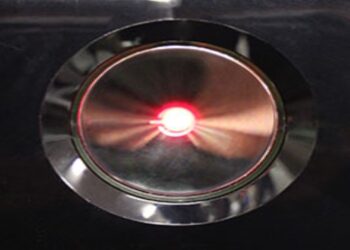Curious about nettle tea and kidneys? You are in the right spot. Let’s explore nettle tea and kidney health. We will separate fact from fiction. This is your guide to understanding if nettle tea helps or harms your kidneys.
Nettle Tea: Kidney’s Friend or Foe?
First, let’s address the main question: Is nettle tea hard on the kidneys? Usually, no, but it’s complicated. Let’s break it down.
Is Nettle Tea Good for Kidneys?
Good news! Nettle tea benefits your kidneys. It is a natural diuretic. This means it helps you pee more. Increased urination flushes out toxins. It keeps your urinary tract healthy. Think of it as a gentle cleanse for your kidneys and potentially helps prevent kidney stones.
Nettle tea supports fluid movement in kidneys and bladder. This vital action is crucial for preventing kidney stones and allows your urinary system to work smoothly.
Why Might Nettle Be Bad for Kidneys?
Now, some bad news. Older nettle leaves can have oxalate. Oxalate can irritate kidneys in large amounts. Nettle tea in moderation is usually safe, but older leaves may not be wise. Moderation is key, folks!
Nettle Tea and Kidney Disease: Move Carefully
Got kidney disease? This is serious. If you have kidney issues, DO NOT drink nettle tea without consulting your doctor first. Seriously. Some herbal supplements can harm your kidneys and interfere with medications.
Drinks to Avoid with Kidney Issues
If your kidneys misbehave, avoid certain drinks. Avoid beverages high in phosphorus, potassium, and sodium. Alcohol, sugary drinks, and carbonated beverages should also go. They can strain your kidneys when they struggle.
- Carbonated drinks: More than two sodas a day may increase chronic kidney disease risk. Cola is particularly concerning due to phosphoric acid, which encourages kidney stones.
- Sugary drinks: Sweet teas, juices, and sodas can disrupt blood sugar and pressure, worsening inflammation. All of this spells trouble for kidneys.
- Alcohol: Excessive drinking hinders kidneys’ blood filtering and raises blood pressure. This damages kidneys over time.
- High-phosphorus drinks: When kidneys falter, phosphorus builds in the blood, weakening bones. Be wary of processed drinks with added phosphorus.
- High-potassium drinks: Depending on your condition, you may need to limit potassium intake. Some drinks are rich in it.
- High-sodium drinks: Sodium is off-limits for kidney diets. Watch for hidden sodium in drinks.
- Energy drinks: These are high in sugar and caffeine but harmful for your kidneys.
- Caffeine (excessive): Too much can increase blood pressure and flow, stressing kidneys.
- Dairy products: Milk, cheese, and yogurt contain high levels of phosphorus and potassium, posing risks for those with kidney disease.
Kidney-Friendly Drink Choices
Now, let’s focus on what you can drink! Water is your best ally. It is affordable, hydrates, and helps kidneys flush waste. Unsweetened tea, herbal infusions, and sparkling water are safe in moderation. Moderate coffee intake is usually fine too.
- Water: Essential for kidney health, helping remove waste effectively.
- Unsweetened beverages: Herbal teas (avoid nettle if you have kidney disease until you check), unsweetened iced tea, and sparkling water are excellent.
- Coffee (in moderation): Good news for coffee enthusiasts! Moderate coffee can fit into a kidney-friendly lifestyle.
Nettle Tea and Potassium: A Potassium Source
Let’s discuss potassium. Is nettle tea high in potassium? Yes! It provides potassium, along with valuable vitamins and minerals. Potassium supports many body functions, including heart health and muscle function. Nettle tea wins nutritionally.
Stinging nettle is a nutrient source. In addition to potassium, you’ll find iron, calcium, magnesium, and zinc in nettle tea. Also, it has vitamins A, C, and K. Think of it as a multivitamin in tea form!
Possible Nettle Tea Side Effects: Watch Out!
Nettle tea has potential downsides and they are usually mild. Some might experience mild stomach upset, fluid retention, sweating, or diarrhea. If applying nettle to your skin (not typical for tea), you may face hives or rashes.
Caution is needed when handling nettle. Those tiny hairs can cause allergic reactions if you’re not careful. Use gloves when harvesting nettle!
Nettle Tea and Medication Interactions: Caution with Blood Thinners!
A critical note: Nettle tea can interact with specific medications, especially blood thinners. If you take antiplatelet or anticoagulant drugs like Warfarin (Coumadin) or Clopidogrel (Plavix), be cautious. Nettle might impact blood clotting, modifying these drugs’ effects. Always confirm with your doctor if you’re on blood thinners before considering nettle tea.
Who Should Steer Clear of Nettle Tea? Know Your Limits
Who should skip nettle tea? Here’s a brief list:
- Pregnant women: Due to research gaps, nettle is not usually recommended during pregnancy.
- Children under 12: Young kids should avoid nettle tea due to limited research findings.
- People with blood sugar issues: Nettle may lower blood sugar; monitor levels closely if you have diabetes or hypoglycemia.
- People on blood thinners: Avoid nettle or use it with caution under medical guidance.
- People with kidney disease (without a doctor’s advice): Speak with your nephrologist first.
If you have existing health issues or take medications, consult a healthcare professional before adding nettle tea to your regimen.
Nettle Tea Basics: Sip Wisely
Advantages of Nettle Tea
Despite warnings, nettle tea has health benefits. Daily consumption may reduce blood pressure and provide anti-inflammatory and antioxidant properties. Whether you forage your nettle or use bags, it can enhance your beverage choices for most people.
Nettle Tea Every Day: Is it Okay?
Can you drink nettle tea daily? For healthy adults, yes! One cup daily is usually safe and beneficial. However, moderation matters, and listen to your body for any adverse reactions.
Avoid Mixing Nettle Tea With This
Avoid blood-thinning medications, the primary concern regarding nettle tea interactions. Don’t combine nettle tea with drugs like Warfarin unless your doctor suggests it.
Duration for Nettle Tea Use
Nettle tea is “possibly safe” for up to one year of use. However, watch for potential side effects such as diarrhea or stomach upset. If issues arise, stop using nettle tea and consult a healthcare expert.
Kidney Health 101: Quick Tips for Healthy Kidneys
What Heals Kidneys Quickly?
While “quickly healing kidneys” isn’t realistic, supporting them involves long-term habits. A balanced diet of nutritious low-sodium foods rich in vitamins and minerals is essential. This approach can slow or stop kidney disease progression.
What Harms the Kidneys?
Diets rich in animal protein from meats and dairy products are tough on kidneys. They are harder to process and create more waste for kidneys to handle. High-protein diets can worsen existing issues or create new ones.
Main Kidney Damagers
The primary threats to kidneys are diabetes and high blood pressure. Managing these conditions is critical for safeguarding your kidney health. Keep track of blood sugar and pressure!
The Best Drink for Restoring Kidney Function?
The answer is simple… Water! Plain water is the best drink for kidneys. It is calorie-free, hydrating, and affordable. For early kidney issues, water is vital to maintain functions.
So here you have it—the comprehensive overview of nettle tea and kidney health. It offers benefits but has considerations, especially if you face kidney concerns or take specific medications. When unsure, always consult your doctor. Cheers to happy and thriving kidneys!










